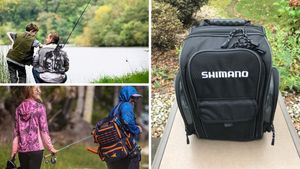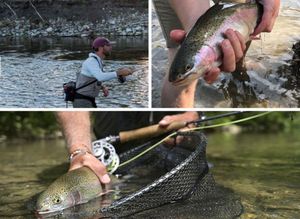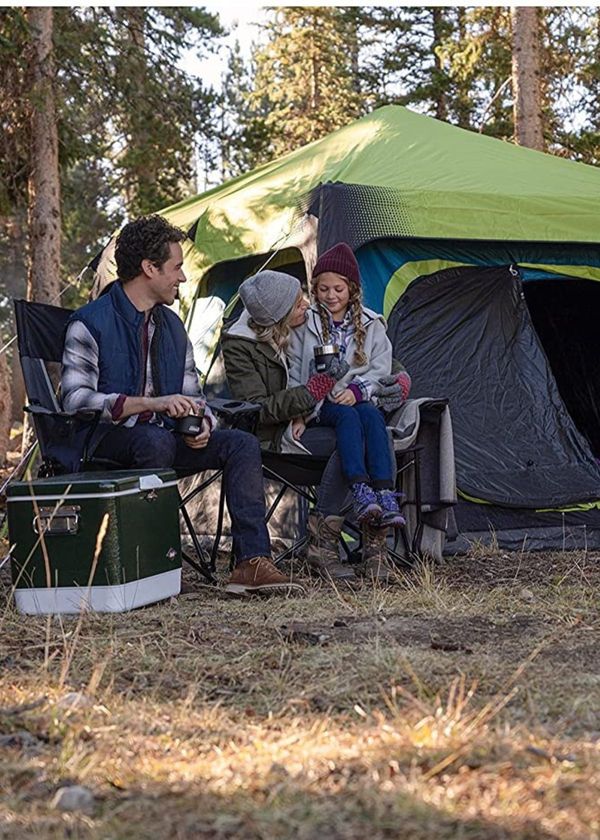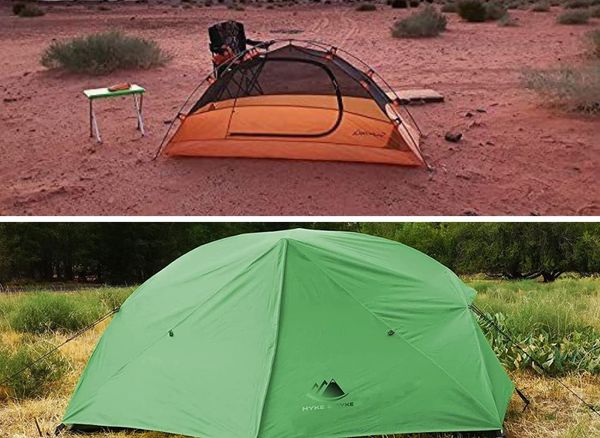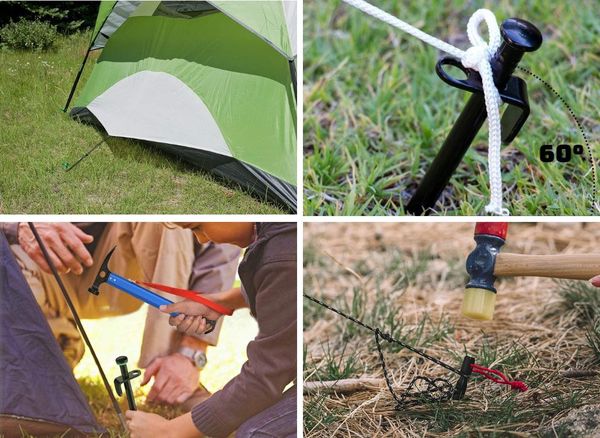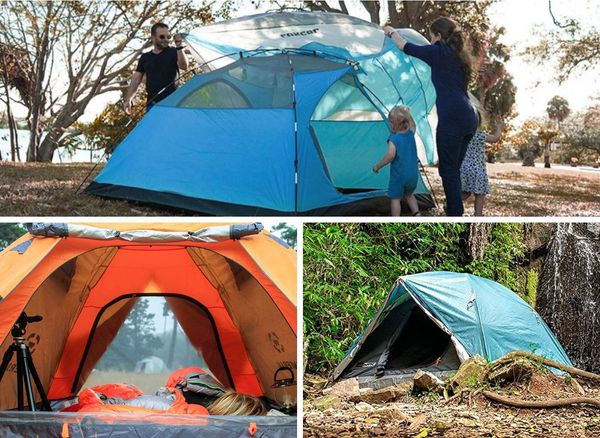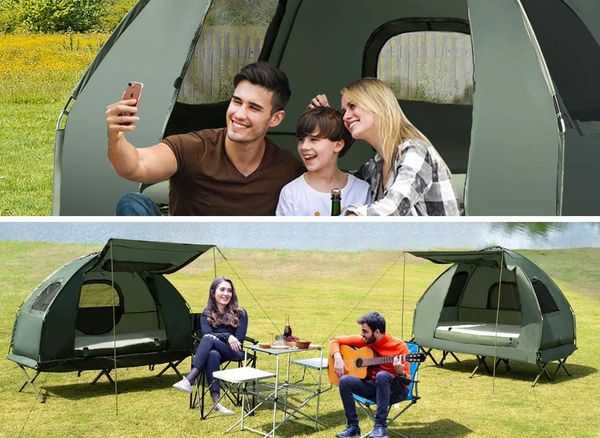There's nothing quite like getting out into nature and enjoying all that the great outdoors has to offer. And one of the best ways to do that is by going for a hike. But before you head out on your next hike, make sure you have all the essentials with you. From sunscreen and water to snacks and a first-aid kit, here are 12 must-have items for a day hike.
A backpack
When you're planning a hike, one of the most important things to remember is to pack a good backpack. After all, you'll need somewhere to store all of your supplies, including food, water, and extra clothing. But with so many different types and sizes of backpacks available, how do you know which one is right for you?
First, consider how long you'll be hiking and how much gear you need to bring. If you're just going for a short day hike, you won't need as much space as if you're planning an overnight trip.
Second, think about comfort. A heavy backpack can quickly become uncomfortable, so make sure to choose one with padded straps and a comfortable fit.
And finally, don't forget to factor in the weather. If you're hiking in warm weather, you'll want a lightweight backpack that won't make you sweat. But if you're hiking in cold or wet conditions, you'll need a waterproof pack to keep your gear dry.
By taking all of these factors into account, you can be sure to choose the perfect backpack for your next hike. A backpack is an essential item for any hike, as it will allow you to carry all of your other items with you. Make sure to choose a backpack that is comfortable and has enough space for everything you need to bring.
Water
When you hit the trail, one of the most important things to remember is to stay hydrated. your body needs water to function properly, and even a small amount of dehydration can lead to fatigue, headaches, and other problems.
A good rule of thumb is to bring one gallon of water per person, per day. That may seem like a lot, but it's important to err on the side of caution. If you're hiking in a hot climate or at a high altitude, you may need even more water. And don't forget that you'll also need water for cooking and cleaning up.
So be sure to pack plenty of water before heading out on your next hike. Your body will thank you for it! It is important to stay hydrated when hiking, so be sure to bring plenty of water with you. A good rule of thumb is to bring one gallon of water per person, per day.
A map
A map is one of the most essential items you can bring on a hike. It will help you to stay on the trail and find your way back if you get lost. Be sure to study the map before you start your hike so that you know where you are going.
A good way to become familiar with the terrain is to look for landmarks that you will be able to see from the trail. This way, if you do get off course, you will be able to orient yourself and get back on track. In addition, it is always a good idea to let someone know your planned route and estimated time of return before you set out on your hike. That way, if something does happen and you do not return when expected, they will know where to start looking for you.
So, before you head out into the wilderness, be sure to pack a map and familiarize yourself with the area. It could just save your life.
A map is essential for any hike, as it will help you to stay on the trail and find your way back if you get lost. Be sure to study the map before you start your hike so that you know where you are going.
A compass
A compass is an essential piece of equipment for any hiker and can be the difference between a safe return to civilization and a long, arduous journey. Compasses work by aligning themselves with the Earth's magnetic field, which points north. This makes them incredibly useful for orienting yourself in unfamiliar territory.
However, compasses can be knocked out of alignment, or even broken entirely. For this reason, it's important to have a backup in the form of a GPS device. GPS devices use a system of satellites to determine your location and can be incredibly useful if you find yourself lost.
Be sure to pack both a compass and GPS before heading out on your next hike! A compass can be a lifesaver if you get lost on a hike, so be sure to bring one with you. If possible, also bring a GPS device as a backup in case your compass fails.
First-aid kit
If you're heading out on a hike, it's always a good idea to pack a first-aid kit. You never know when you might need it, and it's better to be safe than sorry.
Items such as bandages, antiseptic wipes, and pain relievers can come in handy for minor injuries that may occur while you're out on the trail. Plus, having a first-aid kit will give you peace of mind knowing that you're prepared for anything.
So be sure to pack one before your next hike! A first-aid kit is always a good idea, as it can help you to treat minor injuries that may occur while hiking. Be sure to pack items such as bandages, antiseptic wipes, and pain relievers.
Extra clothes
If you're going to be spending any time outdoors, it's always a good idea to bring along some extra clothes. You never know when the weather might take a turn for the worse, or when you might get wet while hiking or doing other activities.
By packing items such as a jacket, hat, and gloves, you'll be prepared for whatever Mother Nature throws your way. And if the temperature does happen to drop unexpectedly, you'll be glad you have those extra layers to keep you warm.
So next time you head out into the great outdoors, remember to pack some extra clothes just in case.
Rain gear
If you're heading outdoors, it's always a good idea to pack rain gear just in case. After all, you never know when the weather might take a turn for the worse.
A raincoat or windbreaker can help to keep you dry, while waterproof boots can help to keep your feet dry and comfortable. In addition, an umbrella can be handy for keeping the rain off your head and face.
By being prepared for bad weather, you can help to ensure that you have an enjoyable time no matter what the forecast may be.
Sun protection
When packing for a hike, it's important to remember to pack sunscreen, sunglasses, and a hat. The sun's harmful rays can damage your skin, and it's important to protect yourself, especially if you are hiking in an area with little shade cover.
Sunglasses help to protect your eyes from the sun's rays, and a hat helps to keep the sun off your face. By doing so, you'll be sure to protect yourself from the sun's harmful rays.
Food and snacks
When you’re planning a hike, it’s important to remember to pack plenty of food and snacks. Even if you’re only planning to be out for a few hours, you will likely get hungry during your trek. That’s why it’s a good idea to bring along food that is high in energy, such as granola bars or trail mix.
And it’s always better to err on the side of caution and bring more food than you think you will need. That way, if you get stranded overnight, you will have enough to eat until help arrives.
So before you head out on your next hike, make sure to stock up on food and snacks. It could save your life!
A headlamp or flashlight
Day hikers often underestimated how long it will take them to reach their destination and find themselves trekking in the dark. If you find yourself in this situation, don't panic. You can still make your way back to the trailhead safely as long as you have a light source.
A headlamp is ideal as it frees up your hands, but a flashlight will also do the trick. Make sure your light source is bright enough to illuminate your path and that it has fresh batteries before setting out on your hike.
With a little preparation, you can hike confidently into the night and enjoy the peace of the wilderness under the stars.
Matches or lighter
There's nothing quite like sitting around a campfire at the end of a long day of hiking. Not only does it provide warmth and light, but it also helps to ward off predators and insects.
Of course, to enjoy a campfire, you'll need to be able to start one. That's why matches or a lighter should always be packed when camping, even if you're just planning on spending one night out.
Make sure to store them in a waterproof container, so they won't get wet if they happen to fall into a stream or puddle. With matches or a lighter on hand, you'll be able to enjoy the campfire experience even on the most remote hikes. If you're planning on doing any camping on your hike (even just overnight), then matches or a lighter will be essential for starting a fire.
So there you have it, 1` must-have item for a day hike! By making sure you have all of these items with you, you can rest assured that you'll have a safe and enjoyable hike no matter where your adventures take you.

